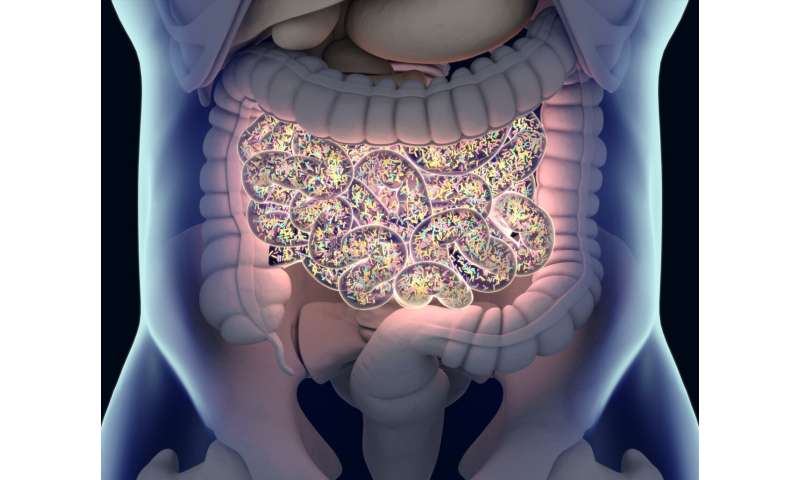
The antibiotic vancomycin alters the gut microbiome in a way that can help prime the immune system to more effectively attack tumor cells after radiation therapy. A new study in mice from researchers at the Abramson Cancer Center of the University of Pennsylvania found giving a dose of the common antibiotic not only helped immune cells kill tumors that were directly treated with radiation, but also kill cancer cells that were further away in the body, paving the way for researchers to test the approach in a human clinical trial. The Journal of Clinical Investigation published the findings today.
More than half of all patients with solid tumors undergo radiation therapy at some point during their treatment. In recent years, multiple studies have shown that giving patients higher doses of radiation over the course of fewer treatments—called hypo-fractionated radiotherapy—can induce a stronger immune response in patients. In addition, hypo-fractionated doses have the ability to impact other tumors cells in the body that weren’t directly treated with radiation. This is known as the abscopal effect.
“Our study shows that vancomycin seems to boost the effect of the hypo-fractionated radiation itself on the targeted tumor site while also aiding the abscopal effect, helping the immune system fight tumors away from the treatment site,” said the study’s senior author Andrea Facciabene, Ph.D., an associate professor of Radiation Oncology in Penn’s Perelman School of Medicine.
Facciabene and his team chose vancomycin for a few specific reasons. First, it mostly targets gram-positive bacteria, making it disruptive to the gut microbiome. Second, it’s a large molecule, which means it stays in the gut and does not circulate to the rest of the body the way other antibiotics do. The fact that it is not systemic limits the impact it has on the rest of the body’s microbiome.
In this study, researchers found vancomycin specifically improved the function of dendritic cells, which are the messenger cells that T cells rely on to know what to attack. While researchers used melanoma, lung, and cervical cancer models for this work, they note the approach could have implications for a wide variety of cancer types. This study also builds off the team’s previous research, which showed a similar effect in T cell therapies, meaning it adds to a growing body of evidence.
Still, the researchers note this study only scratches the surface when it comes to understanding the connection between the makeup of the gut microbiome and its impact on radiotherapy-induced immune responses to cancer. They say further research is needed to understand the implications of specific strains or clusters of bacteria.
Source: Read Full Article
